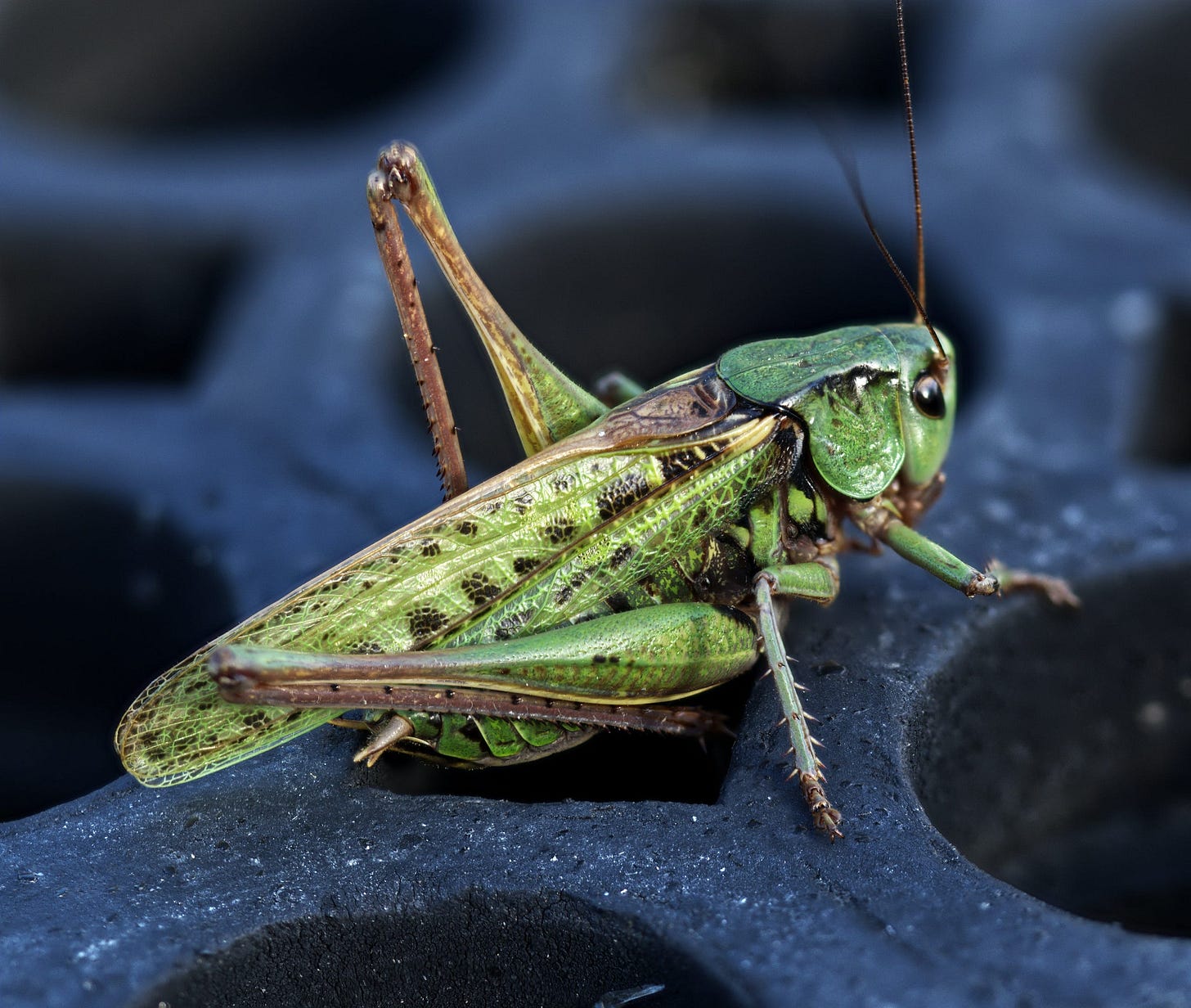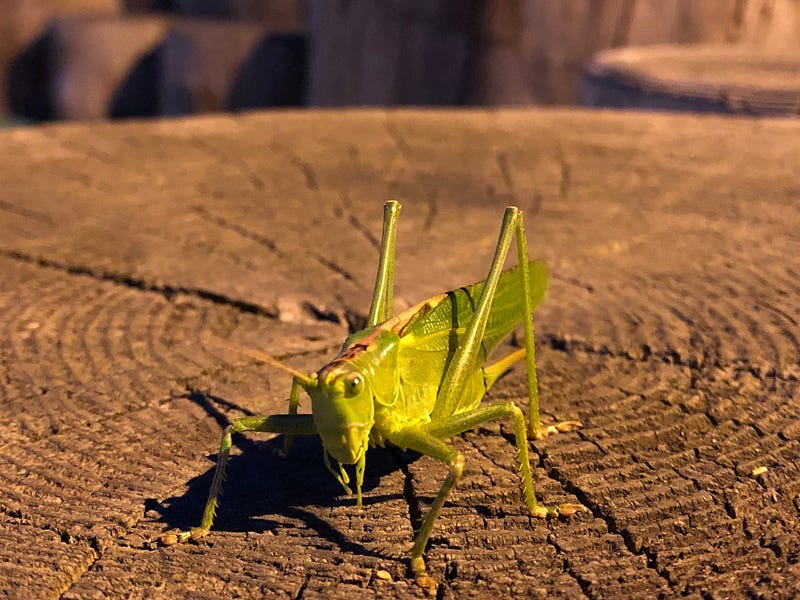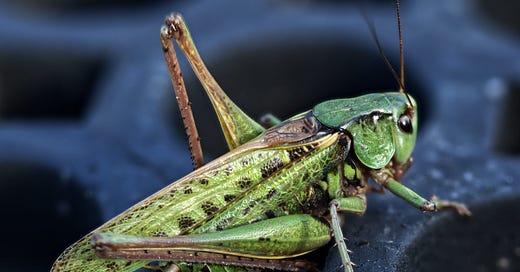A story of suicidal crickets

Have you heard of Frédéric Thomas? He’s a name that might not immediately ring a bell, but his passion for science and his unwavering dedication to unraveling the mysteries of the natural world is nothing short of inspiring.
It’s a story that begins with suicidal crickets in New Zealand, takes a detour through a hunger strike, and ends with a groundbreaking discovery that forever changed the way we view the relationship between parasites and their hosts.
Frédéric Thomas was a French parasitologist with a burning curiosity that led him down an uncharted path in the world of science.
This was long before neuro-parasitology became a recognized field, a time when the idea that parasites could control an animal’s behavior, and was met with skepticism and doubt.
Yet, Thomas saw something in a seemingly bizarre phenomenon involving crickets that captured his imagination.
Leap of death
The story of the crickets is a curious one. These tiny insects in New Zealand were leaping into the water, even though they couldn’t swim.
It was an act of apparent suicide by drowning, and Thomas couldn’t help but wonder if something sinister was at play.
He suspected that an internal parasite might be manipulating the crickets’ behavior, driving them to this seemingly irrational act.
In essence, he was pioneering the study of behavioral manipulation by parasites.
Thomas was convinced that studying these crickets was a scientific priority of monumental proportions.
It wasn’t just about unraveling the mystery of why these insects were acting this way, but it had far-reaching implications for our understanding of how parasites could influence their hosts.
The idea that a tiny organism could control the actions of a larger one in such a covert and insidious manner was groundbreaking, and it was an idea that had the potential to rewrite the rules of biology.
However, there was a significant roadblock standing in Thomas’s way.
The scientific community and funding agencies were less than enthusiastic about supporting his quest to study these suicidal crickets.
Grants were declined, and it seemed like his groundbreaking research would never see the light of day. In the face of this unyielding opposition, Thomas made a move that exemplified the passion and determination of a true biologist.
He declared a hunger strike.
Yes, you read that right. Frédéric Thomas, a scientist, declared that he would not eat until someone took the matter seriously and funded his study on these enigmatic crickets. It’s an extreme gesture, but one that speaks to the depth of his commitment to the pursuit of knowledge.
Many of us in the world of research can, in some small way, understand this impulse to go to such extraordinary lengths for our work.

The hunger strike sent shockwaves through the scientific community and the public. Here was a scientist who was so devoted to his cause that he was willing to risk his own well-being to advance his research.
Things go further
But it didn’t stop there. Thomas took his plea to the highest authority he could think of — the President of France. In a heartfelt letter, he conveyed the urgency of his research and the dire need for funding.
The French government, in a rather unexpected turn of events, couldn’t ignore the passionate plea of a scientist on the brink of starvation.
They were understandably concerned about the negative publicity that could arise from a dedicated worm scientist starving to death in the name of science. So, they decided to take action.
Government officials were dispatched to the university to pressure Thomas and his department heads into calling an end to the hunger strike.
It was a frantic scramble to find a solution to this unprecedented situation. In the midst of this chaos, a benevolent figure emerged on the scene — a Swiss billionaire.
This individual, upon hearing about Thomas’s plight, offered to partially fund the study. The French government, eager to find a way to resolve the crisis, also contributed funding to ensure that Thomas could finally embark on his journey to New Zealand to study these mysterious suicidal crickets.
The outcome
And what did Thomas find? Well, it turns out he was absolutely right about the parasites causing this bizarre behavior.
His groundbreaking research revealed that a parasitic worm was, in fact, controlling the crickets’ actions, leading them to leap into the water.
It was a discovery that turned the scientific world on its head, opening up a new frontier in the study of parasitology and behavioral manipulation.
The hunger strike debacle, though extraordinary, is not even the wildest part of this story. Frédéric Thomas’s unwavering dedication to his research is a testament to the lengths scientists are willing to go to for the sake of knowledge.
His journey from being an obscure scientist with a radical idea to a pioneer in the field of neuro-parasitology is nothing short of remarkable.
It’s a tale that reminds us of the power of passion and determination in the pursuit of scientific discovery. Frédéric Thomas’s hunger strike might be seen as an act of desperation, but it was driven by an unshakable belief in the importance of his work.
A happy ending
In a world where funding and recognition can be elusive for many scientists, his story is a poignant reminder that sometimes, you have to fight for your place in the scientific pantheon.
So, the next time you hear about a scientist pushing the boundaries of their field, remember the name Frédéric Thomas and the crickets of New Zealand. In their seemingly irrational behavior, they taught us a lesson about the incredible power of parasites and the unwavering dedication of those who seek to unravel the mysteries of the natural world.
I, for one, can’t help but feel a deep appreciation for the passion that drives the world of biology, a field where even a hunger strike can become a catalyst for scientific breakthroughs.




